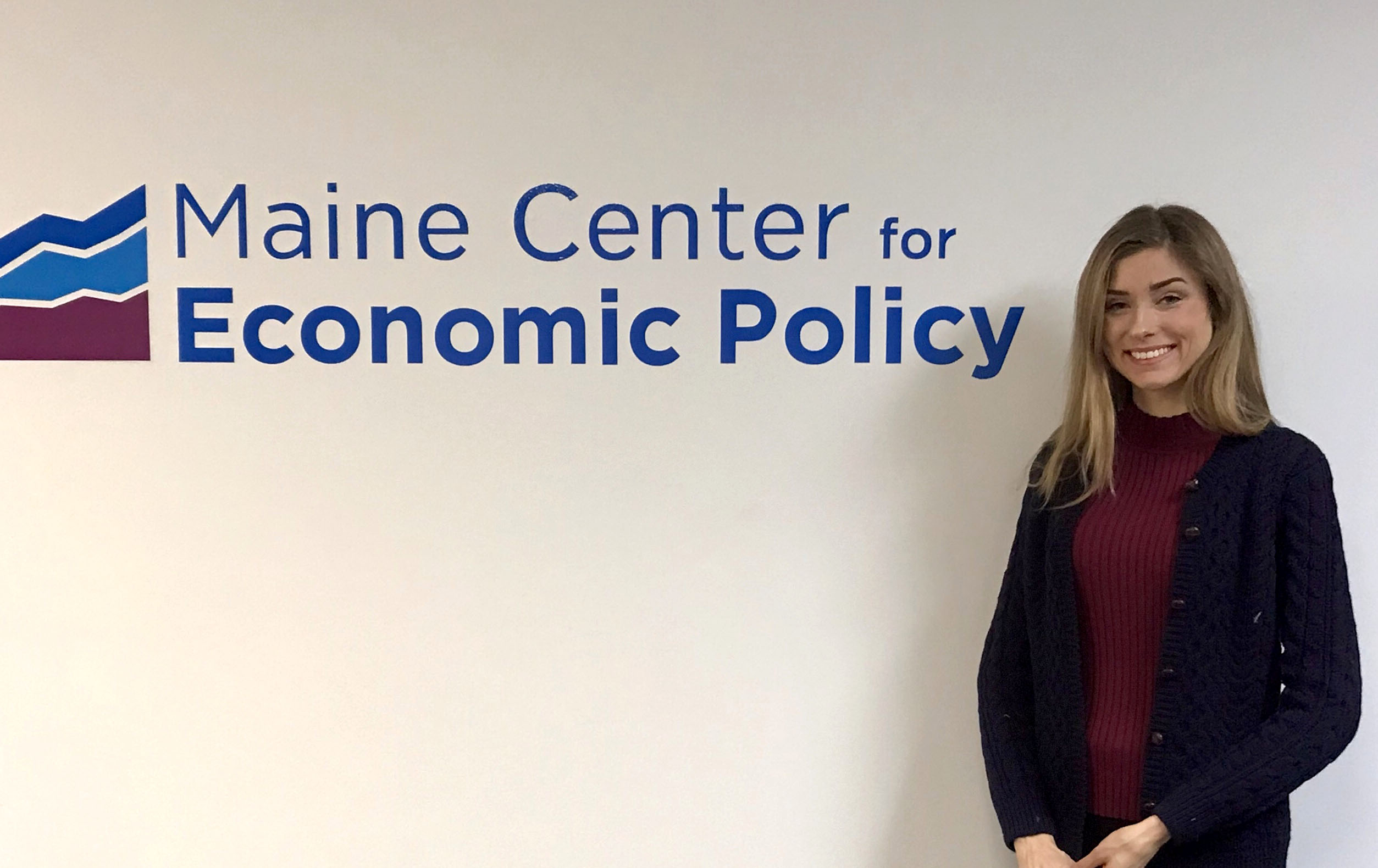Learning how data informs policy
Shiann Keene ’20 interns over winter break with Maine Center for Economic Policy
Internship supported by: Nancy Lyon Porter ’43 Community Service Fellowship
Student majors: Economics, psychology
Working for a cause: “Of all of the economics-based organizations I was considering, the Maine Center for Economic Policy (MECEP) had a mission statement that I could relate to and feel good about. I firmly believe that knowledge is power, and that we must use this power to ground governmental decisions in well-informed data analysis in order to fully understand the ramifications of political legislation. The analysis of economic data informs a greater picture of the experience of Maine people, which can be used to inform politicians on the most effective policies in promoting a just society.”
Doing the homework: “It was my duty to prepare myself with background knowledge about the issues being addressed at meetings with staff, media sources like the Portland Press Herald and various other committees, like the Maine Voices Network Steering Committee. I also observed a legislative hearing for the Pine Tree Development Zone legislation, in addition to a legislative session in the state capitol building. I experienced all aspects of the job, from arriving early at the office on busy days to staying an hour late until all tasks were fulfilled, to completing some tasks at home.”
In her own words: “I also crafted my own article about Children’s Health Insurance Program (CHIP) funding for the MECEP website, a response to the recent CHIP legislation and government shutdown, in regards to its specific effects in Maine. Writing a public article made me realize that my work and education could actually be translated into positive changes in the world.”
Translating numbers into policy: “The work environment at MECEP has increased my understanding of the applications of the foundational economic principles I have cultivated at Wheaton. Conversing with trained economists and researchers about the processes of translating data into policy recommendations allowed me to get a taste of the components surrounding a career in economic data analysis and policy implementation. I observed the analytical process of examining data, compiling sources and ‘connecting the dots’ to identify issues and solutions and helped craft publicly digestible representations of data analysis, accompanied by explanations of the implications of policy suggestions.”

